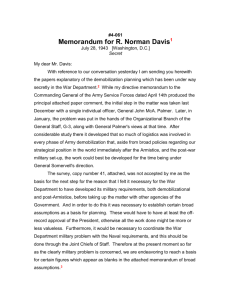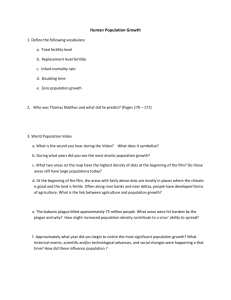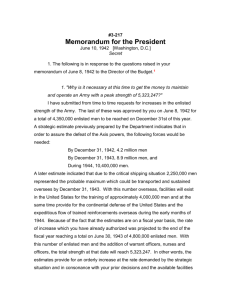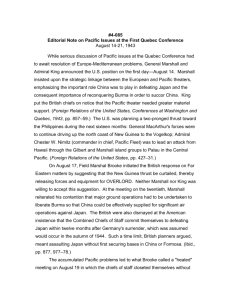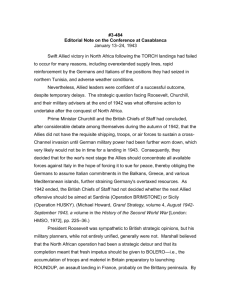3-550 - George C. Marshall Foundation
advertisement
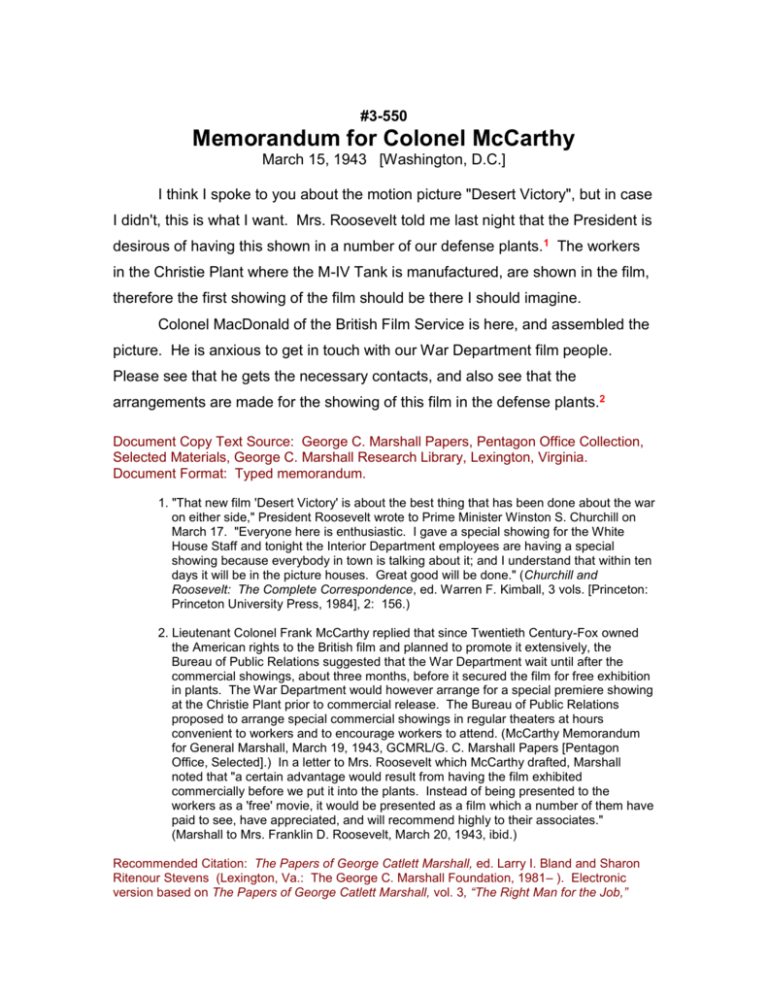
#3-550 Memorandum for Colonel McCarthy March 15, 1943 [Washington, D.C.] I think I spoke to you about the motion picture "Desert Victory", but in case I didn't, this is what I want. Mrs. Roosevelt told me last night that the President is desirous of having this shown in a number of our defense plants.1 The workers in the Christie Plant where the M-IV Tank is manufactured, are shown in the film, therefore the first showing of the film should be there I should imagine. Colonel MacDonald of the British Film Service is here, and assembled the picture. He is anxious to get in touch with our War Department film people. Please see that he gets the necessary contacts, and also see that the arrangements are made for the showing of this film in the defense plants.2 Document Copy Text Source: George C. Marshall Papers, Pentagon Office Collection, Selected Materials, George C. Marshall Research Library, Lexington, Virginia. Document Format: Typed memorandum. 1. "That new film 'Desert Victory' is about the best thing that has been done about the war on either side," President Roosevelt wrote to Prime Minister Winston S. Churchill on March 17. "Everyone here is enthusiastic. I gave a special showing for the White House Staff and tonight the Interior Department employees are having a special showing because everybody in town is talking about it; and I understand that within ten days it will be in the picture houses. Great good will be done." (Churchill and Roosevelt: The Complete Correspondence, ed. Warren F. Kimball, 3 vols. [Princeton: Princeton University Press, 1984], 2: 156.) 2. Lieutenant Colonel Frank McCarthy replied that since Twentieth Century-Fox owned the American rights to the British film and planned to promote it extensively, the Bureau of Public Relations suggested that the War Department wait until after the commercial showings, about three months, before it secured the film for free exhibition in plants. The War Department would however arrange for a special premiere showing at the Christie Plant prior to commercial release. The Bureau of Public Relations proposed to arrange special commercial showings in regular theaters at hours convenient to workers and to encourage workers to attend. (McCarthy Memorandum for General Marshall, March 19, 1943, GCMRL/G. C. Marshall Papers [Pentagon Office, Selected].) In a letter to Mrs. Roosevelt which McCarthy drafted, Marshall noted that "a certain advantage would result from having the film exhibited commercially before we put it into the plants. Instead of being presented to the workers as a 'free' movie, it would be presented as a film which a number of them have paid to see, have appreciated, and will recommend highly to their associates." (Marshall to Mrs. Franklin D. Roosevelt, March 20, 1943, ibid.) Recommended Citation: The Papers of George Catlett Marshall, ed. Larry I. Bland and Sharon Ritenour Stevens (Lexington, Va.: The George C. Marshall Foundation, 1981– ). Electronic version based on The Papers of George Catlett Marshall, vol. 3, “The Right Man for the Job,” December 7, 1941-May 31, 1943 (Baltimore and London: The Johns Hopkins University Press, 1991), pp. 583–584.

